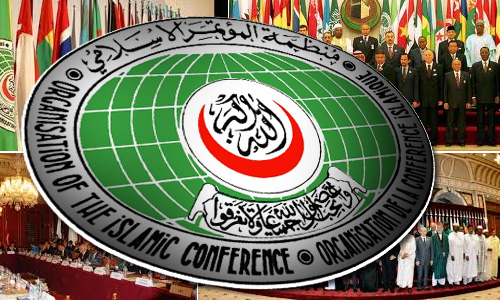
Fatwa on apostasy is not legally binding and only a handful of Organisation of Islamic Cooperation (OIC) countries have laws to punish those who commit it, said United Nations special rapporteur for freedom of religion, Ahmad Shaheed.
He said the views of ulama do not matter and are not binding as these Muslim-majority countries have the freedom on the issue of apostasy.
Ahmad added that most OIC countries do not have such laws because they are secular states.
"There are only a handful of OIC countries or states that have laws punishing apostasy. The exception is Iran (where fatwa becomes law) which has a guardian council of theologians," he said.
Ahmad pointed out that during Prophet Muhammad's time, there were no rules on apostasy, and this was agreed by various scholars.
Later on however, it was done for political purposes, he added.
"The so-called treatment followed rebellion or mutiny, such as in Damascus and Baghdad (soon after the Prophet's death)," Ahmad said when he spoke at an International Malaysian Law Conference in Kuala Lumpur today.
He was asked whether the country can do away with laws on apostasy.
Lawyer Jahaberdeen Mohd Yunos, who was also a panel member in the discussion on freedom of religion, said Muslims in this country need to reclaim Islam for themselves.
He said in order for Malays and Muslims to progress, they have to release themselves from the political and religious bondage.
"Only then they can progress and live completely free."
Admitting that he was not a religious scholar, Jahaberdeen called on the Muslims to hold themselves accountable to Allah over their actions, and also read and understand the Quran.
If this is not done, he added, they would be led astray.
Meanwhile, panellist Lim Heng Seng pointed out that certain non-Muslims are not being treated equally, such as those in Sabah and Sarawak with "bin" and "binti" in their names, and who had religion printed on their identity cards although they are not Muslims.
"They could be practising animism or Christianity, but to resolve this issue they had to go to the syariah courts to get a declaration. This is not proper," he said, adding that only Muslims have access to the syariah court.
Suri Kempe, who is a programme manager at Musawah, said, unfortunately, there are some Islamic institutions that oppress women which is against the teachings of Islam.
“Many human rights violations are perpetrated and justified in the name of religion, with approval from the state, society, community and even individuals,” she said.
Suri said that Malaysia is governed by 14 different sets of shariah laws according to the states.
She also cited a case of a Malay-Muslim man, who said it was alright to hit his wife, as another skewed view on the religion, describing it as "unfair to women". - Mkini



No comments:
Post a Comment
Note: Only a member of this blog may post a comment.